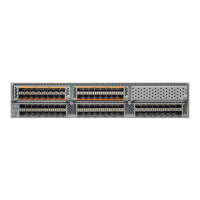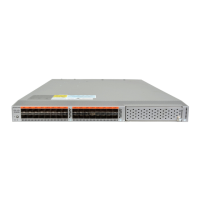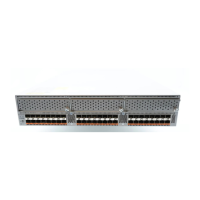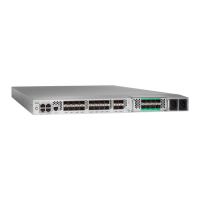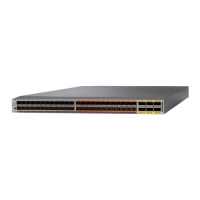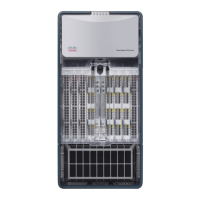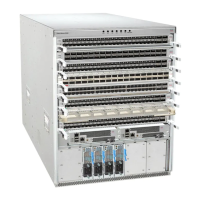154
Cisco Nexus 5500 Series NX-OS Security Command Reference
OL-27883-02
Chapter P Commands
permit (ARP)
permit (ARP)
To create an ARP ACL rule that permits ARP traffic that matches its conditions, use the permit
command. To remove a rule, use the no form of this command.
General Syntax
[sequence-number] permit ip {any | host sender-IP | sender-IP sender-IP-mask} mac any
no sequence-number
no permit ip {any | host sender-IP | sender-IP sender-IP-mask} mac any
Syntax Description
Command Default None
Command Modes ARP ACL configuration mode
Command History
sequence-number (Optional) Sequence number of the permit command, which causes the device
to insert the command in that numbered position in the access list. Sequence
numbers maintain the order of rules within an ACL.
A sequence number can be any integer between 1 and 4294967295.
By default, the first rule in an ACL has a sequence number of 10.
If you do not specify a sequence number, the device adds the rule to the end of
the ACL and assigns a sequence number that is 10 greater than the sequence
number of the preceding rule.
Use the resequence command to reassign sequence numbers to rules.
ip Introduces the IP address portion of the rule.
any Specifies that any host matches the part of the rule that contains the any
keyword. You can use any to specify the sender IP address, target IP address,
sender MAC address, and target MAC address.
host sender-IP Specifies that the rules matches ARP packets only when the sender IP address
in the packet matches the value of the sender-IP argument. Valid values for the
sender-IP argument are IPv4 addresses in dotted-decimal format.
sender-IP
sender-IP-mask
IPv4 address and mask for the set of IPv4 addresses that the sender IP address
in the packet can match. The sender-IP and sender-IP-mask argument must be
in dotted-decimal format. Specifying 255.255.255.255 as the sender-IP-mask
argument is the equivalent of using the host keyword.
mac
Introduces the MAC address portion of the rule.
Release Modification
5.2(1)N1(1) This command was introduced.
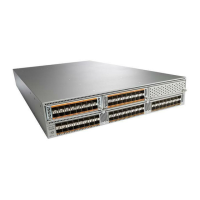
